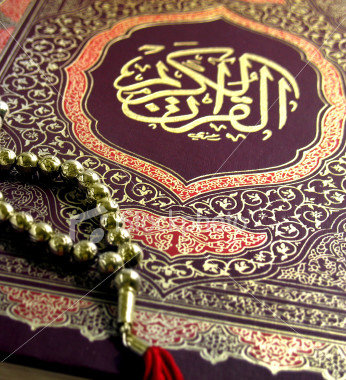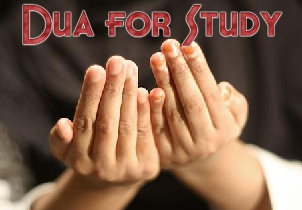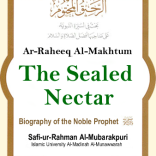Posts Tagged ‘Weak Hadith’
Who Is Imam al-Mahdi?
Posted by: KING-slave of ALLAH ! on: August 4, 2015
- In: All | Christianity | Islam
- Leave a Comment
Who Is Imam al-Mahdi?
“Do not please anyone by angering Allaah” :: Fake(Daeef) Hadith
Posted by: KING-slave of ALLAH ! on: December 13, 2009
- In: All | Allah الله | Fake Hadith | Islam
- 11 Comments

“Do not please anyone by angering Allaah?”
What is the status of the hadeeth,
“Do not please anyone by angering Allaah, do not thank anyone for the blessings of Allaah, and do not condemn anyone for that which Allaah did not give you. For the provision of Allaah does not come to you because of anyone’s efforts and it is not diverted from you because of anyone’s hatred. By His fairness and justice, Allaah has connected peace and joy to contentment and certain faith, and He has connected worry and distress to discontentment.”
Praise be to Allaah.
This hadeeth was narrated by al-Tabaraani in al-Kabeer, 10/215.
Al-Haythami said:
It was narrated by al-Tabaraani in al-Kabeer, and its isnaad includes Khaalid ibn Yazeed al-‘Umari, who was accused of fabricating hadeeth.
Majmaa’ al-Zawaa’id, 4/71.
It was also narrated – via a different isnaad – by Abu Na’eem in al-Hilyah (5/106) and by al-Bayhaqi in Shu’ab al-Eemaan, 1/221.
Its isnaad includes ‘Atiyah al-‘Awfi, who is da’eef (weak), and the comments of the scholars concerning him have been quoted above (p. 78); and it includes Muhammad ibn Marwaan al-Saddi, who is matrook al-hadeeth (his hadeeth is not to be accepted).
Yahyaa ibn Ma’een said:
he is not thiqah (trustworthy), and on one occasion he said: he is nothing.
Ibraaheem said:
he is kadhdhaab (a liar).
Al-Sa’di said,
he is dhaahib (i.e., his hadeeth is not accepted).
Al-Nasaa’i, Abu Haatim al-Raazi and al-Azdi said: he is matrook al hadeeth (his hadeeth is not to be accepted).
Al-Bukhaari said:
his hadeeth should not be written down. And on one occasion he said: they did not say anything concerning him.
Ibn Hibbaan said:
his hadeeth is not to be written down, and it is haraam to use his hadeeth as evidence.
See Meezaan al-I’tidaal, 6/328; al-Du’afaa’ wa’l-Matrookeen, 3/98
It was also narrated by Hannaad al-Sirri in al-Zuhd, 1/304; and by al-Bayhaqi in Shu’ab al-Eemaan, 1/221, with an isnaad which is mawqoof and stops at ‘Abd-Allaah ibn Mas’ood (may Allaah be pleased with him).
Sheikh Muhammed Salih Al-Munajjid
![]()
![]()
![]()
![]()
![]()
![]()
The Best Days of this World
Posted by: KING-slave of ALLAH ! on: November 20, 2009
- In: All | Allah الله | Islam
- 1 Comment
The Best Days of this World

The Virtues of the first 10 days of Dhul Hijja:
1. Ahadith of the Prophet (s):
قال النبي –صلى الله عليه وسلم-( مامن أيام العمل الصالح فيها أحب إلى الله من هذه الأيام قالوا يا رسول الله : ولا الجهاد في سبيل الله قال ولا الجهاد في سبيل الله إلا رجل خرج بنفسه وماله فلم يرجع من ذلك بشئ) رواه البخاري
The Prophet (s) said: “There are no days in which good deeds are more beloved to Allah than during these days. The Sahaba said: Oh Rasul Allah, not even jihad in the path of Allah? He (s) said: Not even jihad in the path of Allah except for the man who goes out in the path of Allah with his life and his wealth and returns with neither of them.”
وقال ( أفضل أيام الدنيا أيام العشر) رواه البزار وصححه الالبانى.
And he (s) said: “The best days of this world are these ten.”
2. Allah swears by these 10 days in the Qur’an:
قول الله تعالى: ((وَالْفَجْرِ، وَلَيَالٍ عَشْرٍ)) سورة الفجر (1-2)، قال ابن كثير رحمه الله: المراد بها عشر ذي الحجة
Allah says: “By the dawn, and by the 10 nights” [Qur’an, 89:1-2]. Ibn ‘Abbas, Ibn al-Zubayr, Mujahid and others of the earlier and later generations said that this refers to the first ten days of Dhul Hijjah. Ibn Katheer said: “This is the correct opinion.”
قال تعالى: ((وَيَذْكُرُوا اسْمَ اللَّهِ فِي أَيَّامٍ مَّعْلُومَاتٍ)) سورة الحج(28)، قال ابن عباس: أيام العشر
Allah says: “…and mention the name of Allah on appointed days…” [Qur’an, 22:28] Ibn ‘Abbas said these are the ten days.
3. These ten days are better than Ramadan:
قال المحققون من أهل العلم: أيام عشر ذي الحجة أفضل الأيام، وليالي العشر الأواخر من رمضان أفضل الليالي.
Most scholars adopt the opinion that these days are better than the last ten days of Ramadan. However, what holds the last ten days of Ramadan at a higher status is the Night of Power (Laylat ul-Qadr) which is equivalent to one thousand months (83.33 years).
تضاعف فيها الحسنات قال ابن عباس”: العمل فيهن بسبعمائة ضعف”
The rewards are multiplied in these days. Ibn ‘Abbas said: “(The reward for good) deeds are multiplied seven hundred times in these days.”
قال الاوزاعى: “بلغني أن العمل في أيام العشر كقدر غزوة في سبيل الله يصام نهارها ويحرس ليلها إلا أن يختص امرء بشهادة”
Al Awzaa’i said: I was informed that good deeds during the ten days are the equivalent (in reward) to a battle in the path of Allah, in which the day is spent in fasting and the night in safeguarding, except if one is bestowed with martyrdom.”
In Ramadan doing good deeds and struggling in worship, especially during the last ten nights, is easier than during these days for a few reasons. Firstly, the atmosphere of the month of Ramadan, whether culturally, spiritually, or traditionally, makes it easier to focus and strive. Secondly, the shayateen are chained. So, to get that drive and direction we had in Ramadan, is much harder when we have most likely fallen out of “Ramadan mode.” However, since the `ibada is more difficult, the reward is greater. So let’s keep this in mind and get ready to really work hard.
The Plan of Action for these 10 days:
1. Really feel this blessing and realize that it is an opportunity of a lifetime, because none of us know if we will witness these 10 days again.
كان خالد بن معدان يقول( إذا فتح لأحدكم باب للخير فليسرع فاءنه لا يدرى متى يغلق عنه
Khalid bin Mi’dan used to say: “If the door for good is opened for one of you, then rush (to take advantage) because you don’t know when it will close.”
2. Have high aspirations in your worship and use the examples of the ijtihad of the saliheen as motivation.
3. Take advantage of the opportunities to get the reward of hajj while being elsewhere.
قال-صلى الله عليه وسلم-( من صلى الفجر في جماعة ثم قعد يذكر الله حتى تطلع الشمس ثم صلى ركعتين كانت له كأجر حجة وعمرة تامة تامة تامة
The Prophet (s) said: “Whoever prays fajr in congregation and then sits in remembrance of Allah until the sun rises, then prays two rak’aat, he has the full reward of hajj and `umrah.”
4. Perfecting the fara`idh (obligatory actions):
Often times we become busy trying to do extra deeds, but neglect the fact that perhaps maybe what is obligatory upon us is not at the level it should be. There is no way for a person to become close to Allah other than through the obligatory actions, as is apparent in the famous hadith qudsi in which Allah says: “My servant does not become closer to me by anything more beloved to me than what I have obligated upon him.”
Reasonable Goals:
1. Khatm of Qur’an: equivalent to more than half a million hasanaat during these days. Let’s try to complete the recitation of the Qur’an during these days, ending by ‘Asr time on the day of ‘Arafah and spending from ‘Asr to Magrhib in du’aa.
2. Qiyam al-Layl:
Rasulallah (s) said: “Whoever stands in prayer, reciting 1,000 verses is written among the muqantareen.” A qintar is equal to 70,000 dinar. The recitation of the last two ajzaa` of the Qur’an is equivalent to 1,000 verses.
3. Extra Salah during the day: The Prophet (s) said: “There is not a Muslim who prays twelve raka’at per day, other than the obligatory prayers, except that a palace is built for him in paradise.”
4. Dhikr: The best form of worship to do in these ten days as apparent in the hadith:
Ibn `Umar said that the Messenger of Allah (s) said, “There is no day more honorable in Allah ’s sight and no acts more beloved therein to Allah than those in these ten days. So say tahlil (There is no deity worthy of worship but Allah: La ilaha illAllah), takbir (Allah is the greatest: Allahu akbar) and tahmid (All praise is due to Allah: alhumdulillah) a lot.” [Ahmad, 7/224]
The Messenger of Allah, may Allah bless him and grant him peace, said, “The best du`a’ is du`a’ on the day of `Arafah, and the best thing that I or the Prophets before me have said is ‘There is no god but Allah, alone, without any partner’ (La ilaha illa’llah, wahdahu la sharika lah)” [Muwatta, Malik].
7. Reviving the Sunnah of Takbir:
Ibn `Umar and Abu Hurairah (ra) used to go out in the marketplace during the first ten days of Dhul-Hijjah, reciting takbeer, and the people would recite takbeer when they heard them.
8. Fasting:
The reward of fasting is great, so imagine how much that reward would be multiplied in these days. If one can’t fast all of the 9 days, then at least on the day of `Arafah as it is the greatest day.
Abu Qatadah reported that the Messenger of Allah (s) said, “Fasting on the day of ‘Arafah is an expiation for two years, the year preceding it and the year following it. Fasting the day of `Ashura is an expiation for the year preceding it.” [This is related by “the group,” except for al-Bukhari and at-Tirmidhi]
The Prophet (s) said “There is no day that Allah will free people more than the day of `Arafah.”
`Ali (ra) used to advise people to say “Oh Allah free my neck from the fire” on the day of `Arafah.
9. Du`a’:
Especially on the day of `Arafah, but also at anytime. Keep in mind the times where du’aa is more likely to be accepted and ask during those times.
* The last third of the night
* Between the adhaan and iqaamah
* During the rain
* In sujood
* Friday
* While fasting
10. Sadaqa (charity):
Give sadaqa during these days, since the reward is multiplied tremendously.
11. Tawba (asking for forgiveness):
Continually renew repentance.
12. Establish ikhlas in `ibada.
13. Check and renew intentions at all times
The Day of `Eid
On the greatest day, remained focused as it is still part of the first 10 days which are the best days of the year! Try not to get too caught up in celebrating that you stop doing the worship that you were doing the first 9 days.
The day of ‘Eid: a day for visiting family and performing the sacrifice for one who is able.
By Zahra
Whoever is the first to give another person the news :: FAKE HADITH
Posted by: KING-slave of ALLAH ! on: November 9, 2009
- In: All | Allah الله | Fake Hadith | Hoax-Email Forwards | Hoax-FB Messages | HOAX-Messages | Islam
- 10 Comments
The Prophet Sallallaahu alaihi wasallam has said, “Whoever is the first to give another person the news about the month of Rabi-ul-Awwal, the fire of hell is Haraam for them”. Is this Hadeeth authentic? If it is not, could you explain the warning for those who circulate fabricated Ahadeeth?
We have not come across a Hadeeth in which it is mentioned that the fire of Hell is Haraam upon the first person who gives the news about Rabi’ul Awwal.
If this Hadeeth is fabricated and was not mentioned by Rasulullah Sallallahu Alaihi Wasallam, the person who fabricated the Hadith as well as all those who convey the Hadeeth are deserving of the severe warning of Rasulullah Sallallahu Alaihi Wasallam. Rasulullah Sallallahu Alaihi Wasallam said, “To fabricate my words is not like fabricating any other person’s words. The person who fabricates my words should prepare an abode for himself in the fire of hell.” (Sahih al Bukhari, Hadith #: 1291).
Unfortunately, due to wide spread ignorance, e-mails containing false information and fabricated Ahadeeth are widely circulated. The creators of such e-mails as well as those who forward them to others should take heed of the severe warning of Rasulullah Sallallahu Alaihi Wasallam. It is therefore imperative that one exercises caution when one receives e-mails of such a nature wherein there is no authentic reference mentioned. Such e-mails or pieces of information should be referred to reliable and learned scholars for verification.
And Allah Ta’ala Knows Best.
The hadeeth of Salmaan about the virtues of Ramadaan is da’eef (weak)
Posted by: KING-slave of ALLAH ! on: August 20, 2009
- In: All | Allah الله | Fake Hadith | HOAX-Messages | Islam
- 1 Comment

The hadeeth of Salmaan about the virtues of Ramadaan is da’eef (weak)
A khateeb of a masjid in my area mentioned in a khutbah a Hadeeth narrated by Salmaan, may Allah be pleased with him, that the prophet, peace and blessings be upon him, gave them a khutbah in the last day of Sha’abaan .. etc. some brothers objected to what the khateeb says in front of the worshippers saying that this Hadeeth is fabricated. He also said that the prophet said: “who feeds a fasting person, Allah will bless him a drink of my Cistern (Al-Hawd), he will never feel thirsty after it until he is in paradise” and also said: “who makes it easy on his salve, Allah will forgive him and frees him of the hellfire”. The brother objected and said: this is lying and the prophet did not say this. A person tells lies about what the prophet said should expect his place in the hell”. Is the Hadeeth mentioned correct or not.
Praise be to Allaah.
The hadeeth of Salmaan was narrated by Ibn Khuzaymah in his Saheeh. He said: Chapter on the virtues of the month of Ramadaan if the report is saheeh.
Then he said: ‘Ali ibn Hijr al-Sa’di told us, Yoosuf ibn Ziyaad told us, Humaam ibn Yahya told us, from ‘Ali ibn Zayd ibn Jad’aan, from Sa’eed ibn al-Musayyab, from Salmaan who said:
The Messenger of Allaah (peace and blessings of Allaah be upon him) addressed us on the last day of Sha’baan and said:
“O people, there has come to you a great month, a blessed month, a month in which there is a night that is better than a thousand months. Allaah has made fasting it obligatory and spending its nights in prayer a voluntary act. Whoever draws close (to Allaah) during it by doing a good deed will be like one who did an obligatory deed in any other month, and the one who does an obligatory deed in it will be like one who did seventy obligatory deeds in any other month. It is the month of patience, and the reward of patience is Paradise. It is the month of helping others. It is a month in which the believer’s provision is increased. Whoever gives a fasting person food with which to break his fast will have his sins forgiven and he will be ransomed from the Fire, and he will have a reward like his without it detracting from his reward in the slightest.”
They said: Not all of us can find something to give to the fasting person with which to break his fast.
He said:
“Allaah will give this reward to the one who gives a fasting person a date or a drink of water or a sip of milk. It is a month the beginning of which is mercy, the middle of which is forgiveness and the end of which is ransom from the Fire. The one who reduces the burden for his slave will be forgiven by Allaah, and He will ransom him from the Fire. So do a lot of four good deeds during it, two with which you will please your Lord and two which you cannot do without. As for the two good deeds with which you will please your Lord, they are bearing witness that there is no god except Allaah, and seeking His forgiveness. As for those which you cannot do without, they are: asking Allaah for Paradise and seeking refuge with Him from Hell. Whoever feeds a fasting person until he is full, Allaah will give him to drink from my Cistern, a drink after which he will not thirst again until he enters Paradise.”
Its isnaad includes ‘Ali ibn Zayd ibn Jad’aan, who is da’eef (weak) because of his bad memory. Its isnaad also includes Yoosuf ibn Ziyaad al-Basri, whose hadeeth is munkar. It also includes Humaam ibn Yahya ibn Dinaar al-‘Awadi, concerning whom Ibn Hajar said in al-Taqreeb: He is trustworthy but he may make mistakes.
Based on this, the hadeeth with this isnaad is not false, but it is weak. However, many of the virtues of Ramadaan are proven in the saheeh ahaadeeth.
Standing Committee for Academic Research and Issuing Fatwas
Fataawa al-Lajnah al-Daa’imah li’l-Buhooth al-‘Ilmiyyah wa’l-Ifta (10/84-85).
![]()
![]()
![]()
The hadeeth “The sleep of the fasting person is worship” :: Weak/Fake Hadith
Posted by: KING-slave of ALLAH ! on: August 15, 2009
- In: All | Allah الله | Fake Hadith | Hadith/Sunnah | HOAX-Messages | Islam | Ramadaan
- 3 Comments

The hadeeth “The sleep of the fasting person is worship” is weak
I heard a khateeb mention a hadeeth from the Prophet (peace and blessings of Allaah be upon him): “The sleep of the fasting person is worship.” Is this hadeeth saheeh?.
Praise be to Allaah.
This hadeeth is not saheeh, and it is not proven from the Prophet (peace and blessings of Allaah be upon him).
Al-Bayhaqi narrated in Shu’ab al-Eeman (3/1437) from ‘Abd-Allaah ibn Abi Awfa (may Allaah be pleased with him) that the Prophet (peace and blessings of Allaah be upon him) said:
“The sleep of the fasting person is worship, his silence is tasbeeh, his du’aa’ is answered and his good deeds will be multiplied.”
Its isnaad was classed as weak by al-Bayhaqi who said: Ma’roof ibn Hassaan (one of the men in the isnaad) is da’eef (weak) and Sulaymaan ibn ‘Amr al-Nakha’i is weaker than him.
Al-‘Iraqi said in Takhreej Ihya’ ‘Uloom al-Deen (1/310):
Sulaymaan al-Nakha’i is one of the liars.
It was classed as da’eef by al-Manaawi in Fayd al-Qadeer (9293) and it was mentioned by al-Albaani in Silsilat al-Ahaadeeth al-Da’eefah (4696) who said: It is da’eef.
What the Muslims should do in general – and this applies even more so to khateebs and daa’iyahs – is to verify reports before attributing a hadeeth to the Messenger of Allaah (peace and blessings of Allaah be upon him).
It is not permissible to attribute to him anything that he did not say. He (peace and blessings of Allaah be upon him) said:
“Telling a lie about me is not like telling a lie about anyone else. Whoever tells a lie about me deliberately, let him take his place in Hell.”
Narrated by al-Bukhaari (1391) and by Muslim in the introduction to his Saheeh (4).
And Allaah knows best.
![]()
![]()
![]()
![]() Note:I’d love to see who visit my website,your views about website. Click here to leave your feedback.
Note:I’d love to see who visit my website,your views about website. Click here to leave your feedback.
![]()












































 Oh Allah,Please Forgive me
Oh Allah,Please Forgive me Ex-Christians-Now Muslim,Alhamdulillah
Ex-Christians-Now Muslim,Alhamdulillah I Love My Prophet Muhammad s.a.w
I Love My Prophet Muhammad s.a.w
















![Fake Grave of Prophet Muhammad [pbuh]](https://islamgreatreligion.files.wordpress.com/2009/07/prophet_muhammad_pbuh_tomb4.jpg)


















Recent Comments